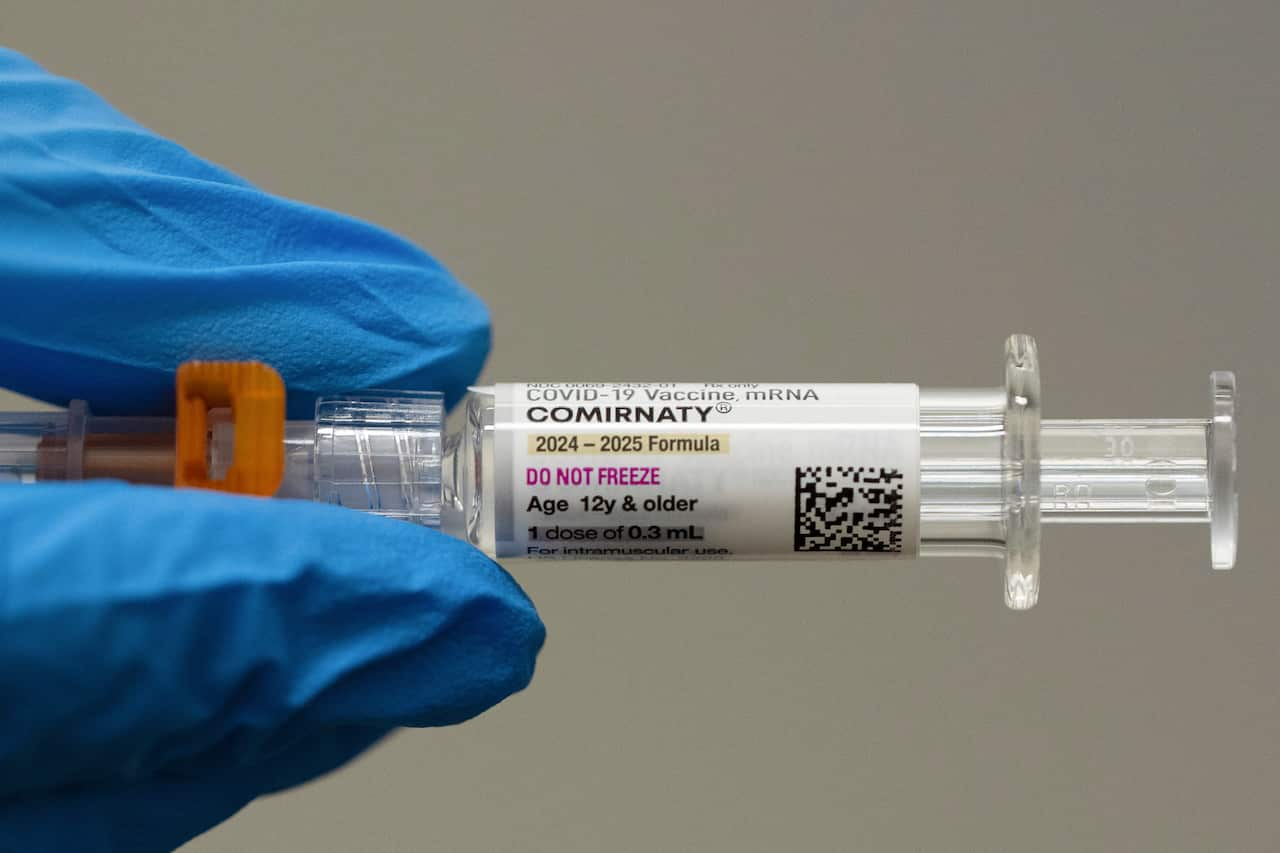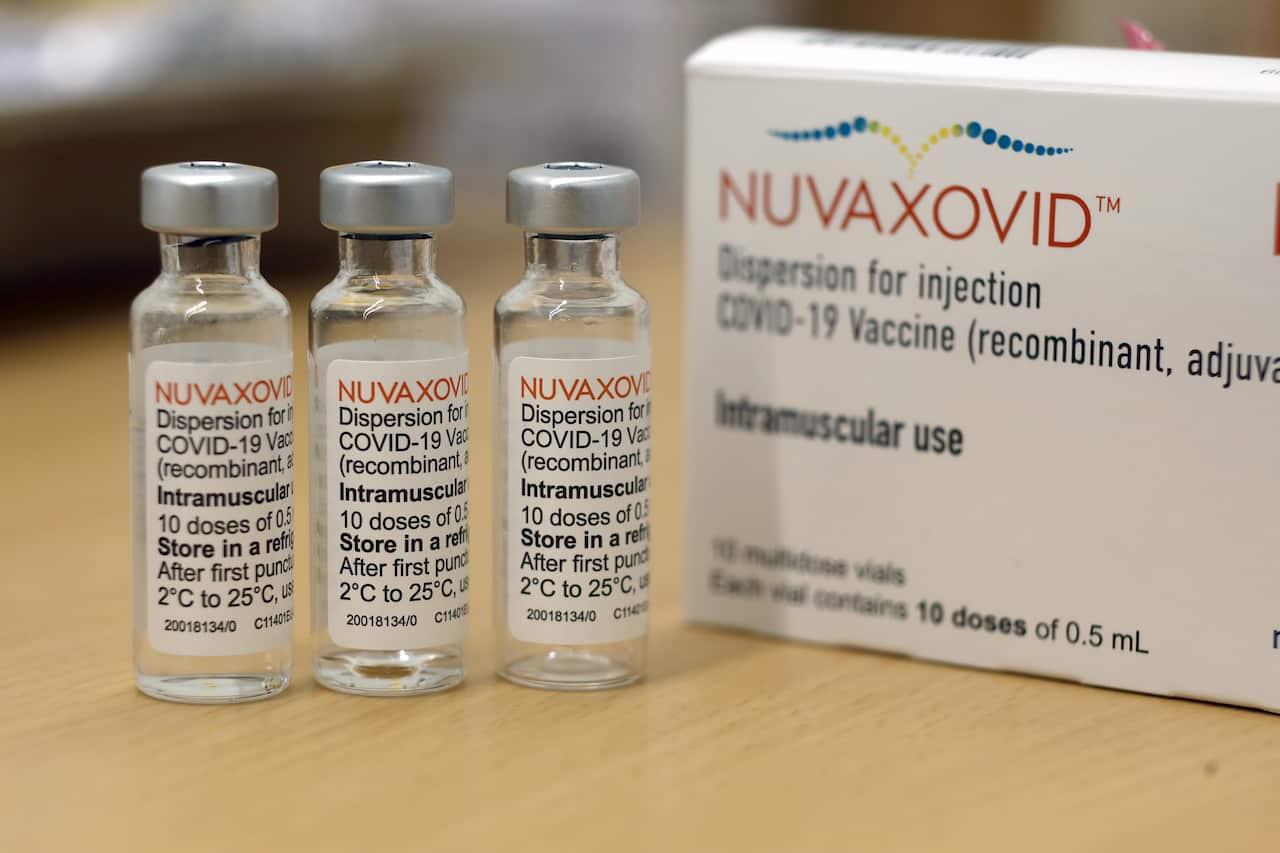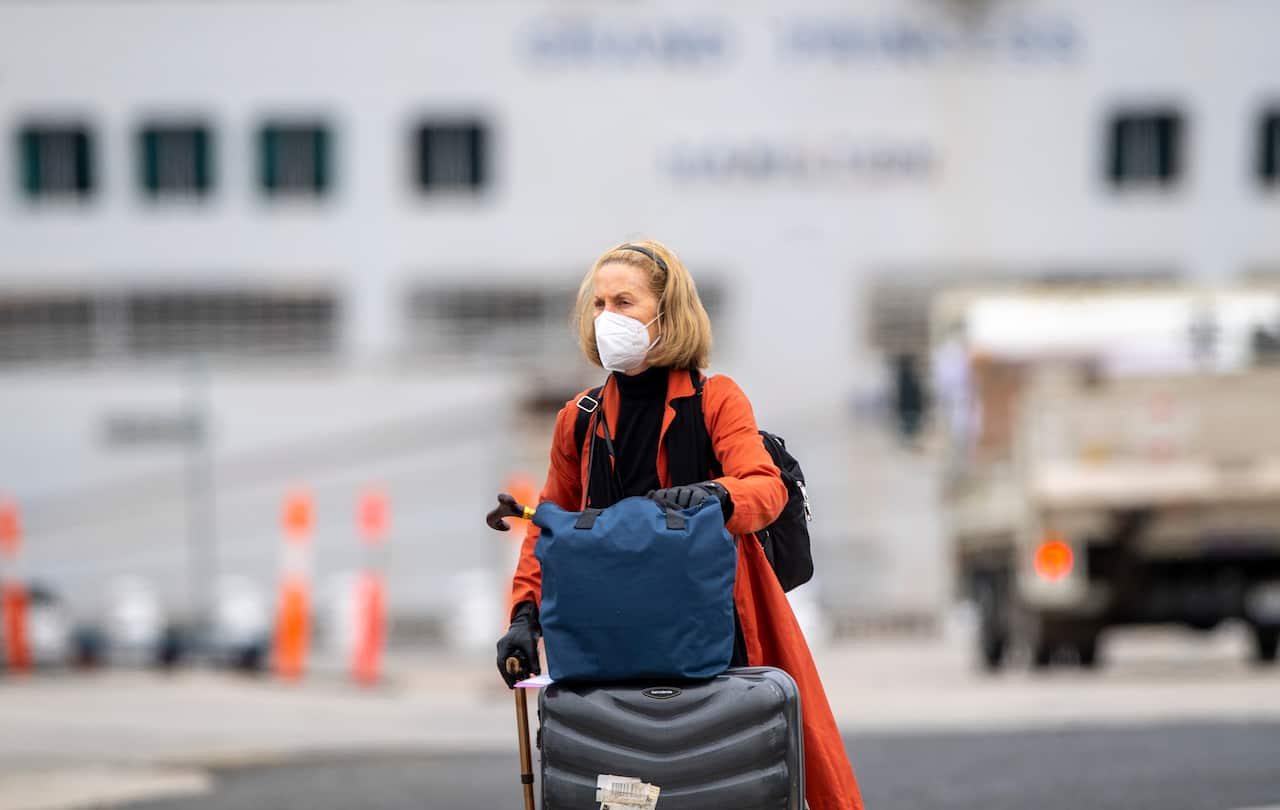People seeking a booster shot of the COVID-19 vaccine may have noticed that there is only one option available: Pfizer Comirnaty JN.1.
According to the latest figures from the Department of Health, Pfizer has been the only vaccine brand administered to Australians since the start of the year.
With two COVID-19 variants circulating across the country, and only 1.9 million Australians having received a vaccine in the past six months, experts say choice is important when it comes to encouraging Australians to get the jab.
So why is there only one vaccine currently available?

What happened to the other vaccines?
The main mRNA alternative to Pfizer is Moderna. Both companies have produced vaccines targeting the Omicron variant JN.1, which was dominant across Australia for much of 2023 and 2024.
Moderna's JN.1 vaccine was approved for use in Australia in late 2024 by the Therapeutic Goods Association (TGA), the body responsible for approving medical products in Australia.
However, despite approval, in 2024 the Australian government decided not to replenish its supply.
"The Commonwealth has sufficient supplies of alternative COVID-19 vaccine brands for 2024," a Department of Health spokesperson told SBS News at the time.
This could change next year, however, as a newly built Moderna Technology Centre at Monash University in Melbourne is aiming to locally produce 100 million vaccines per year for COVID-19, influenza, and respiratory syncytial virus. It is expected to start production in late 2025.
AstraZeneca's COVID-19 vaccine — a viral vector vaccine — was withdrawn globally in 2024. The company said the decision was driven by the shift to newer, updated vaccines amid the emergence of new variants.
Why isn't Novavax available?
Another mRNA alternative also not on our shelves is Novavax.
In 2020, Novavax was one of the first batches of vaccines to bought by Australia. Its original COVID-19 vaccine, Nuvaxovid, was available for Australians from early 2022.
Its updated vaccine, Nuvaxovid XBB.1.5, did not receive TGA approval in Australia.
"It wasn't that approval was revoked with any specific safety or efficacy concerns. It was just that the amount of data required for that approval to be met just wasn't achieved," Dr Paul Griffin, infectious diseases physician and clinical microbiologist at Brisbane's Mater Health Services, said.

Novavax told SBS News it is committed to making the vaccine available to Australians and are working with the TGA to determine the best path forward. However, according to the TGA, Novavax withdrew its registration on 21 May 2024.
Professor Adrian Esterman, chair of biostatistics and epidemiology at the University of South Australia, said that low uptake in Australia may have been a factor in the company deciding not to renew its registration.
"It's not so much that the vaccine doesn't work, but it's simply not commercially viable for them," he said.
"Since then, they've developed a JN.1 vaccine which has been approved in several other countries, but they haven't bothered with Australia."
Esterman said this is not good news for people who relied on Novavax as an alternative to mRNA offerings.
Why do some people prefer Novavax?
Novavax is a protein subunit vaccine. Esterman said it's made by taking the genetic material of the virus, the DNA, and putting it into the cells of a moth. This makes the moth produce spike proteins.
"They then add to that what they call an adjuvant, which is a substance they get from a soapbark tree, and that helps the body react to these spikes ... and that's what they inject in you," he said.
An mRNA vaccine, by contrast, tells your body to make the spike proteins. Griffin said Novavax is preferred by some people who have had reactions to mRNA vaccines in the past.
"There are a whole host of people who have had reactions to mRNA vaccines, things like myocarditis, for example, and it's thought that perhaps that's a lower risk with Novavax. Or people who just don't like the thought of a vaccine based on the mRNA technology."
Why choice matters
Esterman explained that having a variety of vaccine options is about making sure you have the right tools for the job.
"It's best to have several tools in your tool case. You wouldn't have one type of hammer; what if it doesn't work? You need something different. So it's good to have a variety of vaccines, and most countries do that."
It can also impact overall vaccination uptake, which both Griffin and Esterman say is currently low among vulnerable populations.

July figures from the Department of Health indicate that only 35 per cent of Australians aged 75 and over received a vaccination in the last six months, dropping to 22 per cent for those aged 65 to 74. Only 3 per cent of people between 18 and 64 received a vaccine this year. While these figures are slightly higher than previous months, overall rates of vaccination are lower than experts would like.
"There's certainly a lot of people that aren't opposed to being vaccinated who just don't want, or can't have, an mRNA vaccine, and so are likely to remain unvaccinated, which is a huge issue," Griffin said.
"If we could get a proportion of those people to be boosted, it would certainly be beneficial. So I'd really like to see there be an option for an alternative."
Are we still catching COVID-19?
In short: yes.
Generally speaking, there are two COVID-19 waves each year: summer and winter. A recent winter peak is subsiding after an outbreak across more than 200 aged facilities.
The current dominant strain in Australia is NB.1.8.1 or the Nimbus variant. Another variant, XFG or Stratus, is growing in dominance overseas, with high rates of infection in India, Spain, the United Kingdom, and the United States.
Griffin warned that there are still risks between the waves, and it is important not to be complacent.
"Between those waves we see significant numbers of cases, and still see people in hospital from COVID-19...and that's why we really need to keep the highest risk people regularly vaccinated to keep them protected."
The Australian government recommends those in high-risk groups, such as the over-75s, aged care residents, or the immunocompromised, receive a booster shot every six months. For lower-risk groups, a booster shot every 12 months should suffice.
Correction: A previous version of this article stated that AstraZeneca's COVID-19 vaccine was an mRNA vaccine. It has been updated to reflect that it was a viral vector vaccine.
For the latest from SBS News, download our app and subscribe to our newsletter.

